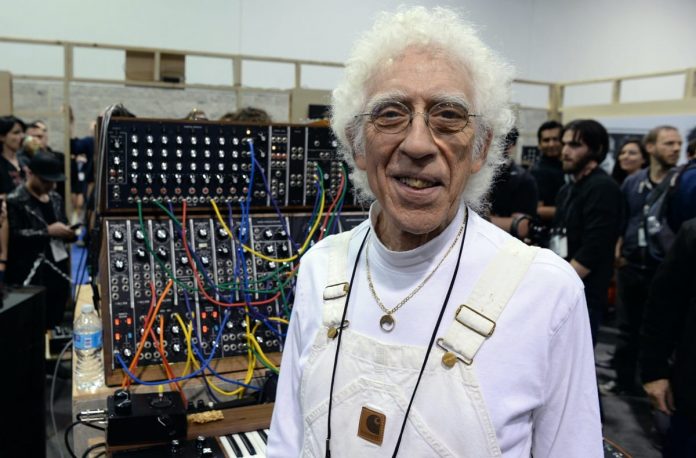Malcolm Cecil might be best known to jazz followers as bassist with Ronnie Scott, the Jazz Couriers and others, but post-jazz he achieved greater fame – and presumably wealth – as a synthesist and record producer for Stevie Wonder and various pop luminaries. His electronic instruments are the focus of an online sale, beginning 10 November, on the website Reverb.com.
Cecil, who died in March this year, aged 84, moved from bebop towards the world of popular music when he joined blues-boomers Cyril Davies and Alexis Korner in the early 1960s, but it was his partnership with Robert Margouleff and the creation of the TONTO (The Original New Timbral Orchestra) synthesizer array that launched him into a life among the stars.
His CV included associations with Quincy Jones, The Isley Brothers, Stephen Stills, Jeff Beck, Ginger Baker, Minnie Ripperton, Billy Preston and Gil Scott-Heron. However, his headline involvement was perhaps his work on several highly successful Stevie Wonder albums, including the landmark Talking Book (1972).
Cecil’s working method with Wonder is well described in a Reverb article that includes the observation from Cecil that “everything was done sort of jazz fashion, it was all head arrangements”. Wonder was in favour of that jazz sound, wanting Cecil to play upright bass on the 1972 Music Of My Mind but it became clear it wasn’t the right tone. Cecil told Wonder: “This music is not jazz. This sounds more like R&B to me than jazz. It’s a different sort of bass sound.” Wonder asked Cecil if the sound he had in mind could be synthesized and thus the Moog bass entered Wonder’s musical arsenal.
“The Official Malcolm Cecil Reverb Shop” will feature dozens of electronic instruments from Cecil’s home studio, among them synthesizers, samplers, tape decks and oscilloscopes. In particular it will include a Conn Strobotuner, a Synclavier II and a matching keyboard Cecil used in his collaborations with Gil Scott-Heron, a Univox SR 120 drum machine, a Kurzweil K2000 and an M. Steinert & Sons organ.
Pressed for jazz connections (though, yes, Stevie Wonder is an honorary jazzman), Reverb’s spokesperson volunteered that the sale will also include a Fender Precision Fretless Bass, a Guild Acoustic Bass and a Steinbeger Synapse 5-string bass.
More information at https://reverb.com/news/malcolm-cecil-synths-and-studio-gear-to-sell-on-reverb.
















